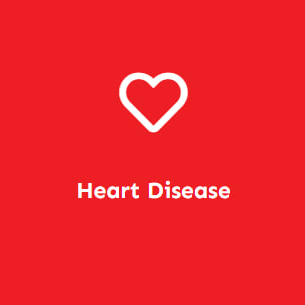Stress
Stress is or our toxic response to stress, making everything worse. It is a natural response to challenging situations, triggering a cascade of physiological and psychological reactions aimed at helping us cope with threats. However, when stress becomes chronic or overwhelming, it can have detrimental effects on both our physical and mental well-being. Prolonged stress has been linked to a range of health issues, including cardiovascular problems, weakened immune systems, anxiety, depression, and even cognitive impairment.
The good news is that many lifestyle changes can effectively mitigate and even reverse the harmful effects of stress. By adopting healthier habits and making intentional choices, individuals can manage stress levels and improve overall quality of life.
Dementia
Dementia is the premature aging of the brain. It is a collective term for a range of cognitive impairments that affect memory, thinking, behavior, and the ability to perform everyday activities. Alzheimer’s disease is the most common form of dementia, but there are other types as well. While dementia is often associated with aging, it is not a normal part of the aging process. Currently, there is no known cure for most types of dementia, including Alzheimer’s disease. However, research suggests that certain lifestyle changes can help slow down its progression and improve the quality of life for individuals living with dementia.
Hyper-tension
Hypertension is where your vessels are under too much pressure. Commonly known as high blood pressure, is a chronic medical condition in which the force of blood against the walls of the arteries is consistently too high. It is a significant risk factor for serious health issues, including heart disease, stroke, and kidney problems. While medication can be prescribed to manage hypertension, adopting positive lifestyle changes can play a pivotal role in both preventing and managing the condition effectively.
Making lifestyle adjustments is crucial in managing hypertension. These changes can help lower blood pressure, reduce the risk of complications, and potentially reverse the progression of the condition.
Heart disease
It is where there is too much fat and cholesterol clogging up the arteries. Often referred to as cardiovascular disease, it encompasses a range of conditions that affect the heart and blood vessels. These conditions include coronary artery disease, heart failure, arrhythmias, and more. While certain risk factors for heart disease, such as genetics and age, cannot be changed, lifestyle factors play a significant role in its development and progression. Adopting healthy lifestyle changes can effectively manage heart disease, improve cardiovascular health, and potentially reverse its course.
Implementing positive lifestyle changes is essential for individuals with heart disease to enhance their well-being and reduce the risk of complications. These changes can lead to improved heart health and an overall better quality of life.
Diabetes
Diabetes is a chronic medical condition characterized by elevated blood sugar levels. It is a chronic medical condition characterized by elevated blood sugar levels. There are two main types of diabetes: type 1, which is often diagnosed in childhood and requires insulin treatment, and type 2, which is typically linked to lifestyle factors and can develop at any age. While diabetes cannot be completely reversed, adopting healthy lifestyle changes can significantly improve blood sugar control, reduce the risk of complications, and enhance overall well-being.
Positive lifestyle changes are essential for individuals with diabetes to effectively manage their condition and improve their quality of life. These changes can help regulate blood sugar levels, prevent complications, and promote overall health.
Obesity
Obesity results when we consume more calories than we burn. It is a complex medical condition characterized by an excessive accumulation of body fat. It is a significant global health concern that increases the risk of various health issues, including diabetes, heart disease, and certain types of cancer. While obesity is influenced by genetic factors, lifestyle choices play a major role in its development and management. Positive lifestyle changes can lead to weight loss, improved health outcomes, and a better quality of life.
Lifestyle changes are key to managing obesity and achieving sustainable weight loss. These changes can help individuals reduce body fat, improve metabolic health, and lower the risk of obesity-related complications.
Cancer
Cancer is like an unwanted weed in the garden that can take over the entire garden. It is is a group of diseases characterized by the uncontrolled growth and spread of abnormal cells within the body. It can develop in virtually any tissue or organ and has various forms, including breast cancer, lung cancer, colorectal cancer, and more. While many factors contribute to cancer, including genetics and environmental exposures, adopting a healthy lifestyle can significantly reduce the risk of developing certain types of cancer and improve outcomes for those already diagnosed.
Although lifestyle changes cannot guarantee the prevention of all cancers, they can play a crucial role in reducing the risk of many types of cancer. These changes focus on promoting overall health and minimizing factors that contribute to cancer development.

Auto-immune disease
Auto-immune disease is where the body’s immune defenses attack our own bodies. These diseases are a group of complex and diverse medical conditions in which the immune system, which normally protects the body from harmful substances, mistakenly attacks healthy cells and tissues. This immune system dysfunction can lead to inflammation and damage in various organs and systems. Autoimmune diseases encompass a wide range of disorders, including rheumatoid arthritis, lupus, multiple sclerosis, and Type 1 diabetes, among others. While there is no guaranteed cure for autoimmune diseases, lifestyle changes can play a significant role in managing symptoms, reducing inflammation, and improving overall well-being.
Lifestyle changes are important in managing autoimmune diseases because they can influence immune system function, reduce inflammation, and support the body’s overall health. These changes can complement medical treatments and improve quality of life for individuals with autoimmune conditions.
Depression
Depression is anger turned inwards, causing feelings of despondency and dejection. It is a complex mental health disorder characterized by persistent feelings of sadness, hopelessness, and a lack of interest or pleasure in activities. It can impact a person’s thoughts, emotions, behaviors, and physical well-being. While the exact causes of depression are not fully understood, it is believed to result from a combination of genetic, biological, environmental, and psychological factors.
Lifestyle changes can complement medical treatments and therapies for depression by promoting mental and emotional well-being, reducing symptoms, and enhancing overall quality of life. These changes address various aspects of a person’s life that can contribute to or worsen depression.












